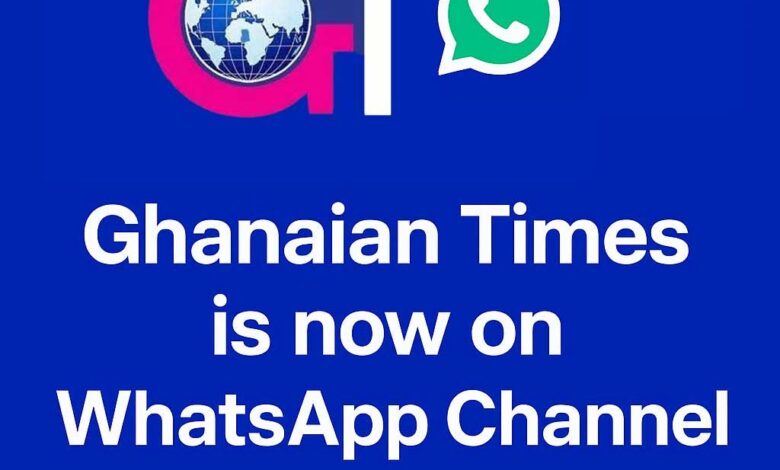HPV vaccine roll-out: What you should know

HISTORY will be made tomorrow, Tuesday, October 7, 2025, as Ghana introduces the Human Papillomavirus (HPV) vaccine into its national immunisation programme to protect girls aged nine to 14 years from cervical cancer, one of the leading causes of cancer-related deaths among women in the country.
The nationwide exercise, which will start with a five-day campaign, marks a major milestone in Ghana’s fight against cervical cancer through prevention.
Below, The Ghanaian Times provides answers to some key questions about the vaccine and what parents, guardians and the general public need to know:
What is HPV?
The Human Papillomavirus (HPV) is a common sexually transmitted infection that affects both males and females, usually during sexual activity and other skin-to-skin contact. Most sexually active people will get HPV at some time in their lives, though most will never even know it. HPV infection is most common in people in their teens and early 20s.
There are more than 100 types of HPV, but a few high-risk strains, especially HPV types 16 and 18, are responsible for about 70 per cent of cervical cancer cases globally. Even though persistent infection with HPV usually has no signs and symptoms, the changes in the body that may lead to cancer occur later in life or can start even during adolescence.
Why the HPV Vaccine?
The HPV vaccine protects against the types of HPV that cause cervical cancer, as well as other HPV-related diseases such as genital warts and certain throat and anal cancers. Vaccinating girls before they become sexually active ensures maximum protection before exposure to the virus.
Health experts describe the introduction of the HPV vaccine as a game-changer in women’s health, with the potential to drastically reduce new cervical cancer cases in the coming decades.
What is cervical cancer?
This is the cancer of the lower part of the uterus that connects to the vagina. Cervical cancer happens when the cells at the opening of the womb become abnormal and start to grow out of control.
It is the second leading cause of cancer and cancer-related deaths among women in Ghana. It often affects women at the end of their reproductive years; 40–50 years, with around 3,000 new cases and 2,000 deaths recorded annually in the country.
What causes cervical cancer?
The primary cause of cervical cancer is persistent HPV infection.
What are the risk factors for the development of cervical cancer?
There are several risk factors for persons getting HPV infection and developing cervical cancer. These include:
• persons not vaccinated against HPV
• early initiation of sexual activity
• unprotected sex with multiple partners
• a weak immune system
• smoking and exposure to tobacco
What are the signs and symptoms of cervical cancer?
Initially, cervical cancer has no symptoms. The symptoms of cervical cancer often occur late, when the disease has already spread into other tissues (advanced disease) and hence becomes more challenging to manage. Therefore, no one should wait to see these before taking action.
Symptoms may include:
• offensive blood-stained vaginal discharge
• bleeding between menses (inter-menstrual bleeding)
• bleeding after intercourse or washing of the vagina
• painful intercourse
• bleeding after menopause
These symptoms can also occur when a woman has other health conditions. Therefore, it is important for women to go for regular cervical check-ups.
How can cervical cancer be prevented?
All HPV-related conditions can be prevented through actions to avoid getting the virus and steps to detect it early if a person has it, so appropriate action can be taken. These steps toward cervical cancer prevention include:
• abstaining from early sex
• avoiding multiple sexual partners
• vaccinating against HPV
• cervical screening and early treatment of cervical lesions
Who would be given the HPV vaccination during this exercise?
The HPV vaccine will be given to girls aged 9 to 14 years from October 7 to 11, 2025, targeting an initial 2.5 million girls. Experts say the vaccine works best when given before exposure to the virus. This will ensure girls within the targeted age group are protected against cervical cancer later in life.
What happens after the HPV vaccination campaign?
After the initial campaign, the HPV vaccine will be integrated into routine immunisation services, allowing eligible girls to receive it year-round at health facilities and through school-based outreach. Parents whose daughters miss the campaign or are below nine years at the time of the campaign can still visit health centres to get them vaccinated later.
What is the name of the HPV vaccine being used?
The HPV vaccine being used in the national campaign is Gardasil 4. It protects against the two most common types of human papillomavirus (HPV) types 16 and 18, which are responsible for about 70 per cent of cervical cancer cases. Additionally, this vaccine offers protection against other types of the virus (6 & 11) that cause genital warts.
How will the HPV vaccine be administered?
The current HPV vaccine available will be given as one dose in the form of an injection in the left upper arm. Vaccination cards will be issued free of charge as proof that one has been vaccinated. These cards are to be kept in a safe place and produced whenever requested later in life.
Are there possible adverse events following immunisation with the HPV vaccine?
Most vaccinated people will have no adverse events at all. However, in fewer situations, the following could occur:
• pain, redness or swelling at the injection site
• mild fever
• dizziness
• drowsiness
• headache
• stomach upset
• rash
Although these may go away on their own without treatment, they must be reported to the nearest health facility. Health workers are equipped to manage any such reactions.
Who should NOT receive HPV vaccine?
• girls with a known severe allergic reaction after receiving previous HPV vaccine
• girls who are seriously ill; however, they can take the vaccine when they recover
• a pregnant adolescent
Why is the HPV vaccine only given to girls in Ghana?
- Cost-effectiveness:
While there’s a growing understanding of the benefits of gender-neutral HPV vaccination (vaccinating both boys and girls) and some high-income countries have moved towards it, the primary focus in Ghana remains protecting girls directly from the overwhelming burden of cervical cancer in a resource-efficient manner. This means that for now, Ghana is starting with girls. This is cost-effective in the current situation. - Indirect protection for boys:
When a high proportion of girls in a population are vaccinated, it significantly reduces the circulation of high-risk HPV types. This creates what is described as “herd immunity,” which means offering indirect protection to boys and unvaccinated individuals, thereby reducing their risk of HPV infection and associated cancers too.
Therefore, a girls-only vaccination programme can still have a substantial impact on HPV-related diseases across the entire population, even without directly vaccinating boys.
What happens if girls within the age bracket don’t get vaccinated for HPV?
Girls who are not vaccinated face a high chance of HPV infection and related cancers of the cervix, vagina, and vulva. It is therefore important for girls to be vaccinated at the right age (9–14 years).
Is the vaccine at a cost? Is it lifelong?
The HPV vaccine is free of charge under Ghana’s Expanded Programme on Immunisation (EPI) of the GHS. Studies show that the vaccine offers long-lasting protection—at least 15 years and possibly lifelong, without the need for booster doses.
Is HPV vaccination new in Ghana?
No, HPV vaccines have been licensed for use and with continuous monitoring by FDA in Ghana for over 10 years now. It is mostly accessed by individuals, families and households who can afford to purchase the vaccine from pharmacies and health facilities in the private sector.
The government is now rolling it out as part of routine immunisation for all girls aged 9–14 years to receive this life-saving protection free of charge.
Myths and misconceptions about the vaccine?
Some misconceptions suggest that the HPV vaccine promotes early sexual activity or causes infertility. Health experts have strongly debunked these claims, emphasising that the vaccine does not affect fertility and has no link to sexual behaviour. The vaccine simply prevents a future infection that could lead to cancer, much like how childhood vaccines protect against other serious diseases.
Are there best practices from other countries?
The HPV vaccine has been in global use since 2006, with over 140 countries, including 28 in Africa, adopting it. Countries such as Rwanda, Kenya, and Tanzania in Africa have successfully introduced the HPV vaccine and seen declines in HPV infection rates and precancerous cervical lesions among vaccinated groups.
Others like Australia and the United Kingdom have recorded over 80 per cent reduction in HPV infections since introducing the vaccine.
Conclusion:
The rollout of the HPV vaccine marks a historic step in Ghana’s public health journey, protecting the next generation of women from a preventable and deadly disease.
“Given the limited access to screening and treatment, HPV vaccination is our best chance to eliminate cervical cancer. Ghana’s approach, targeting girls aged 9–14 years, follows global best practices and would mitigate financial barriers, ensuring equitable access for all eligible girls,” Dr Fiona Braka, the WHO Country Representative, said.
The HPV vaccine would support national and global goals to eliminate cervical cancer by 2030 through the “90-70-90” strategy, which seeks to ensure: 90 per cent of girls are vaccinated by age 15 years, 70 per cent of women screened at ages 35 and 45 years, and 90 per cent of women with lesions receiving timely treatment.
Parents, schools, and communities are encouraged to support this campaign by ensuring that all eligible girls are vaccinated. Protecting girls today means saving lives tomorrow.
BY ABIGAIL ANNOH
🔗 Follow Ghanaian Times WhatsApp Channel today. https://whatsapp.com/channel/0029VbAjG7g3gvWajUAEX12Q
🌍 Trusted News. Real Stories. Anytime, Anywhere.
✅ Join our WhatsApp Channel now! https://whatsapp.com/channel/0029VbAjG7g3gvWajUAEX12Q






